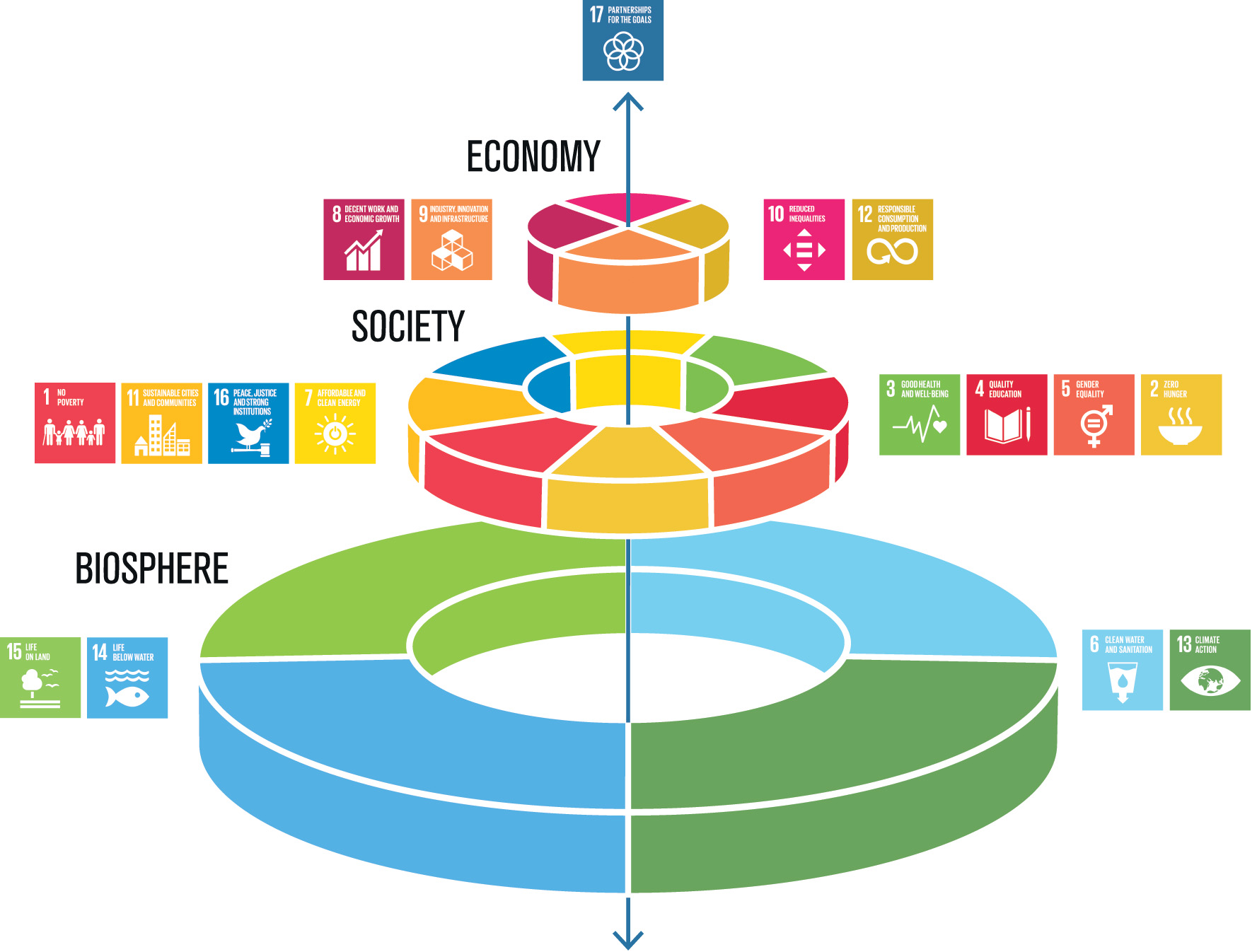Responsible expertise and sustainable development
In line with its strategy, Jamk is committed to taking responsibility into account in all its operations and acting in an ecologically, socially, culturally and economically sustainable manner. Jamk implements Arene’s Sustainable, responsible and carbon-neutral universities of applied sciences 2030 programme and its educational promise: “Sustainable development skills for all”. Jamk educates responsible specialists who are able to promote sustainable development in their work and respond to challenges in their work with innovation and competitive skills. The growth of responsible expertise does not end in graduation; it continues in graduates’ professional lives through continuous learning and professional growth.
In line with Arene’s recommendations published in 2022, Jamk’s competence-based graduate programmes define sustainable development competence as follows:
Bachelor’s degrees
Graduating students are familiar with the principles of sustainable development, promote the implementation of those principles and act responsibly as professionals and members of society.
- They are able to use information related to their respective fields to find, adopt and establish sustainable solutions and operating models.
- Graduates also understand sustainability challenges, their interdependencies and the many perspectives of issues and problems.
Master’s degrees
Graduating students develop and manage sustainable and responsible operating methods in their work and support the sustainability transition in their work community and society.
- They are able to apply information and future visions about sustainable development as a basis for comprehensive sustainable solutions.
- They are able to analyse and assess the systemic dependencies of complex transdisciplinary problems and the different dimensions of solutions.
- In addition, they are able to manage the search for, adoption and establishment of sustainable solutions and operating models in their work community.
The curriculum 2024 studies start with a shared course, Basics of Sustainable Development 1 cr to ensure a shared base level of competence. Subsequent sustainable development studies are integrated into vocational core competence studies for each degree. In Master’s degree programmes, sustainable development competence is included in advanced vocational studies.
UN Sustainable Development Goals as a framework
The UN Sustainable Development Goals and targets provide a framework for developing responsible expertise in different degree programmes. The selected SDGs and targets portray in concrete terms what objectives each Bachelor’s and Master’s degree has especially committed to. When the selected SDGs are combined with sustainable development competence, it becomes apparent how an expert graduating from a certain degree can promote sustainable development in their work in practice.

Figure 1. Hierarchical outline of the relations between the goals of the 2030 Agenda (Johan Rockström & Pavan Sukhdeev 2015)
Tips for drawing up a curriculum that promotes sustainable development
- Identify how sustainable development is or can be included in the degree and the related professional identity, using the UN SDGs and targets as identification tools.
- Outline the sustainable development competence – information, skills, values and attitudes – that the study modules consist of. Which vocational study modules of the degree programme is the competence linked to? Which courses or practical training include sustainable development competence?
- Plan the evaluation. Evaluating sustainable development competence requires using suitable assessment methods and including sustainable development competence in the course evaluation criteria.
- Design pedagogical solutions. What kinds of pedagogical solutions and learning environments support students’ development of sustainable development competence at different stages of the study path?
Materials to support curriculum work
Jamk strategy 2020-2030 (jamk.fi)
The Sustainable Development Goals of United Nations
UN Association of Finland | Suomen YK-liitto
The SDGs wedding cake – Stockholm Resilience Centre
Megatrends 2023: these are the trends we cannot ignore (Sitra)
Leena Liimatainen 30.5.2023